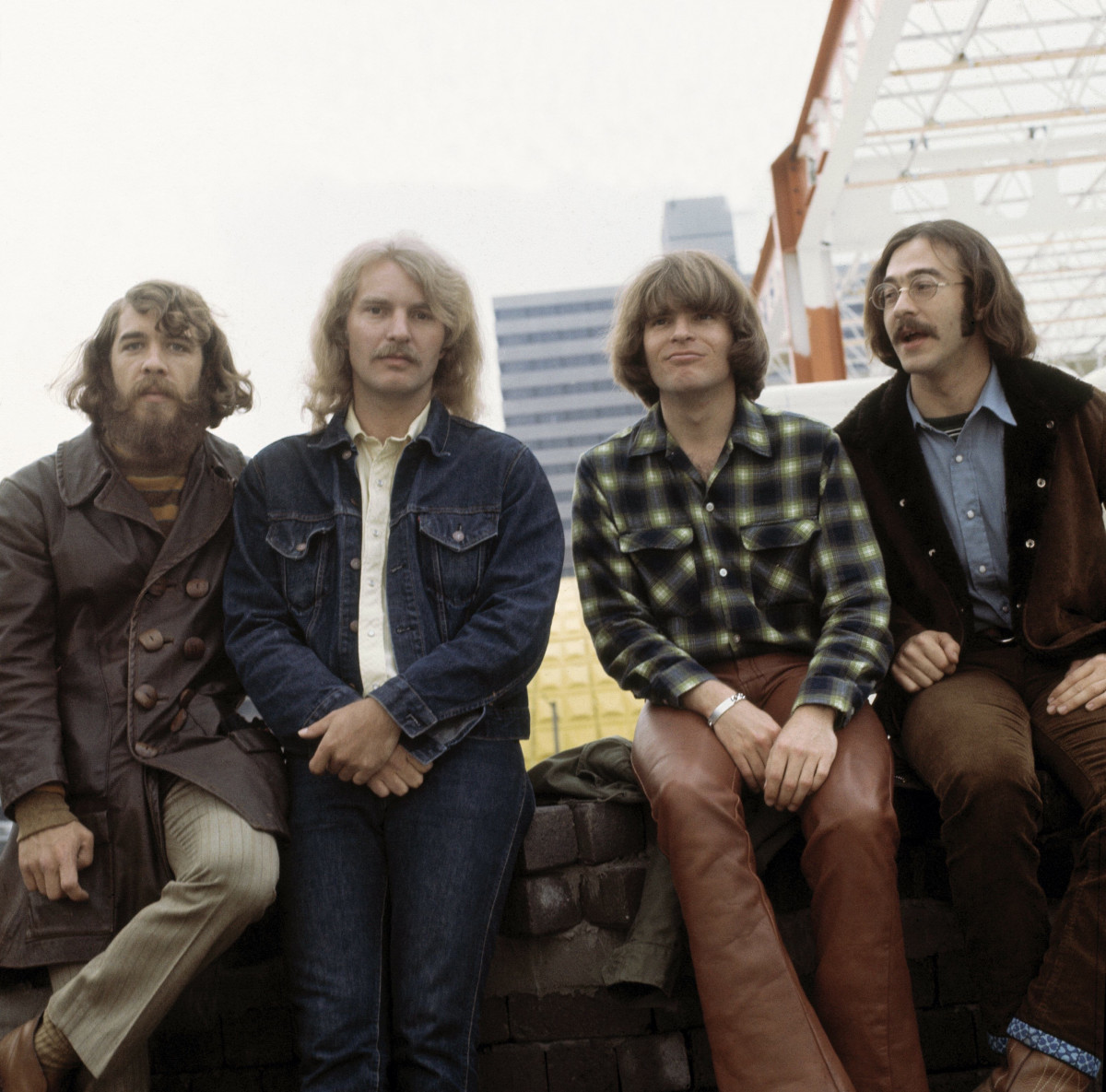
“Cross-Tie Walker” rides the rails between freedom and loneliness—a dusty, good-time shuffle that still carries the ache of people who keep moving because standing still hurts more.
“Cross-Tie Walker” is one of those Creedence Clearwater Revival tracks that doesn’t shout for attention—yet once it starts rolling, it feels inevitable, like a train you didn’t notice until the ground began to tremble. It’s a deep cut, not a hit single, but it sits inside one of the most important moments of CCR’s rise: the Green River album, released August 7, 1969 on Fantasy Records, recorded March–June 1969 at Wally Heider Studios (San Francisco), and produced by John Fogerty. On the original LP, “Cross-Tie Walker” appears on Side Two, Track Three, running about 3:20, credited to John Fogerty.
In chart terms—because you asked for precision—“Cross-Tie Walker” itself did not chart, since it wasn’t released as a single. Its “ranking” story belongs to the album that carried it. Green River became CCR’s first No. 1 album on the Billboard 200, reaching the top spot in October 1969. That rise was powered by the era’s big radio engines: “Bad Moon Rising” (released April 16, 1969) peaked at No. 2 on the Billboard Hot 100 and went No. 1 in the UK for three weeks; its B-side, “Lodi,” reached No. 52 in the US. The single “Green River” also peaked at No. 2 in the US. So when you listen to “Cross-Tie Walker,” you’re hearing the inside track—the song that lived in the album’s shadow, while the singles blazed outside in daylight.
But “Cross-Tie Walker” has its own glow: not neon, more like the warm, flickering light you see from a distance near the tracks.
The title itself is a little mystery box. According to accounts tied to Fogerty’s own recollections, the phrase “cross-tie walker” was invented by John Fogerty—a folk-sounding term meant to conjure the image of hoboes and drifters moving along the railroad ties, living by motion and chance. That’s the song’s emotional center: a romanticized freedom that is never fully romantic. Trains promise escape, but they also imply restlessness. They carry you away from something… and toward nothing you can name.
That tension comes through in the music. The track moves with a two-step bounce, almost playful, the kind of rhythm that makes you picture dust in the air and boots on packed earth. Yet underneath that jaunty surface is a quieter feeling: the sense of a person traveling not for adventure, but because the road has become the only familiar room left. CCR were masters of this balancing act—making songs that feel easy on the ear while they smuggle in a more complicated truth.
And then there’s the “railroad myth” of it all. Fogerty has spoken elsewhere about formative train imagery—being stopped at a crossing as a child, watching an old engine pass, feeling the romance and weight of American motion. Whether you treat that as literal autobiography or simply the kind of memory that becomes symbolism, it fits the song perfectly: the train as a moving monument, something older than you, larger than you, indifferent to your plans, yet strangely comforting because it keeps going.
What “Cross-Tie Walker” ultimately means is less about one character and more about a familiar American ache: the belief that freedom is somewhere “down the line,” paired with the suspicion that you may never arrive. It’s the sound of the road calling—sweetly, insistently—while quietly asking what it costs to answer.
So yes, “Cross-Tie Walker” never carried a chart number of its own. But it carries something else, something harder to measure: a little moving picture of the late-1960s CCR world at full strength—tight band, sharp songwriting, and that unmistakable feeling that the past is rolling by just outside the window, close enough to hear, too fast to hold.